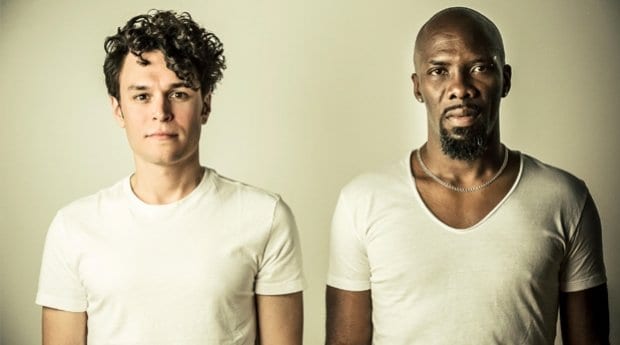Being an ally is complex. On one hand, many of us attempting to support marginalized groups have some experience of marginalization ourselves. At the same time, suggesting we understand the experiences of people living in bodies that are not our own often serves to alienate the very people we’re trying to connect with.
Playwright Andrew Kushnir’s Small Axe started with precisely this sort of exchange. Discussing experiences of homophobia with a gay Jamaican-Canadian friend in 2007, he felt a click.
“I was making an exciting link and I remember feeling, ‘Holy shit! Even though you’re black and I’m white, as gay men, we basically have the same story,’” Kushnir says. “With lots of love, my friend said that while there were similarities, it’s not exactly the same.”
A major moment of connection for Kushnir was precisely the opposite for his friend. Replaying the exchange, he wrestled with why his response was problematic, which led him to research how virulent and violent homophobia can be in parts of Jamaica. He found himself wanting to create awareness around the issue but gradually discovered why it can be problematic for white artists to take on these challenges. Instead of appropriating other people’s experiences, he chose to let them speak for themselves.
Conceived as documentary theatre, Small Axe is based on countless interviews Kushnir conducted with a number of queer people of Jamaican decent. Gareth Henry was one of the initial subjects he interviewed, and Henry became an informal cultural consultant on the project.
“It’s important to utilize every medium available to inspire shifts in people’s thinking and behaviour,” Henry says. “Theatre is a compelling way to get the message across and create awareness around social issues. It’s great at bringing together multiple perspectives. When you’re talking about the intersection of race, culture and class, it’s a strong way to fathom that complexity.”
Small Axe
Until Sun, Feb 1
The Theatre Centre, 1115 Queen St W
tickets.ticketwise.ca/event/smallaxe


 Why you can trust Xtra
Why you can trust Xtra


